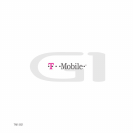
40
41
temperature and/or humidity ranges, condensation may form on or within
the device. To avoid damaging the device, allow sufcient time for the
moisture to evaporate before using the device.
Notice: When taking the device from low-temperature conditions into a
warmer environment or from high-temperature conditions into a cooler
environment, allow the device to acclimate to room temperature before
turning on power.
• Avoid pushing objects into product
Never push objects of any kind into cabinet slots or other openings in the
product. Slots and openings are provided for ventilation. These openings
must not be blocked or covered.
• Mounting Accessories
Do not use the product on an unstable table, cart, stand, tripod, or bracket.
Any mounting of the product should follow the manufacturer’s instructions,
and should use a mounting accessory recommended by the manufacturer.
• Avoid unstable mounting
Do not place the product with an unstable base.
• Use product with approved equipment
This product should be used only with personal computers and options
identied as suitable for use with your equipment.
• Adjust the volume
Turn down the volume before using headphones or other audio devices.
• Cleaning
Unplug the product from the wall outlet before cleaning. Do not use liquid
cleaners or aerosol cleaners. Use a damp cloth for cleaning, but never use
water to clean the LCD screen.
Regulatory Agency Identications
For regulatory identication purposes, your product is assigned a model number
of DREA100.
To ensure continued reliable and safe operation of your device, use only the
accessories listed below with your DREA100.
The Battery Pack has been assigned a model number of DREA160.
Note This product is intended for use with a certied Class 2 Limited Power
Source, rated 5 Volts DC, maximum 1 Amp power supply unit.
Federal Communications Commission Notice
This device complies with part 15 of the FCC Rules. Operation is subject to the
following two conditions: (1) This device may not cause harmful interference,
and (2) this device must accept any interference received, including interference
that may cause undesired operation.
This equipment has been tested and found to comply with the limits for a Class
B digital device, pursuant to Part 15 of the FCC Rules. These limits are designed
to provide reasonable protection against harmful interference in a residential
installation. This equipment generates, uses, and can radiate radio frequency
energy and, if not installed and used in accordance with the instructions, may
cause harmful interference to radio communications. However, there is no


















